TALENT is the most misused word in the language we all swim in as artists. More often than not it is meant as a simple compliment of doing something well. An imperfect term in the place of one that may not be there when someone sees something you do and loves it. Talent is more often a word used to stand in for PRACTICE, or TRAINING, or simply HARD WORK. When someone praises your talent, well they aren’t being dismissive of your work, you just did so well they can’t see the work anymore. Talent is aptitude, but skill comes from Work. Talent can fuel the car, but it won’t refuel the tank and never mistake it for the vehicle to get you where you need to go.
Talent is undoubtedly behind the reality that some of us are more easily able to get to a place in art that take others some time to get to. We’ve all sat next to this person in class, where they just plain zip ahead where you are grinding away. I know those people and I have been those people. And I have fallen down hard by being this person. Thing is, that sort of talent can easily be a cul-de-sac of creative atrophy if leaned upon too ferociously. It invites hubris and hubris kills learning and growth. It’s enviable for the speed by which it propels an artist forward, but it only does so up to a point. Talent without hard work is just a head start without a finish. And what’s the point of that really? It’s day-trading in the art world and not the kind of thing you do if you intend a long term career. The art life isn’t a sprint, it’s a marathon. No marathon is won by talent. I can name a dozen beyond talented artists- folk who are miles beyond where I or many of my working peers were at their stage. And more often than not by miles I see that talent stall out at a certain and usual point. None of these artists are working or have found their voice beyond the point at which their natural ability fuels them to. Talent can be the honeypotest of honeypots.
To be able to naturally draw a thing well doesn’t mean you’re going to be assured a good piece or drawing. it. It sounds crazy but it’s true, and you do see it a lot. One of the best example pools of seeing this is via the terrific benefit of the internet’s seemingly infinite pool of art sharing. Assuming that we only post work we think best reflects ourselves, a lot of the work can at first blush seem beyond the pale. If taken one at a time minus any context it can even be sort of depressing to see what people can do out there. But after a time you will see that the same bell is being rung over and over. The same place is being hit and then all movement forward stops. If you go and check their whole feed you might and will likely see a whole slew of work that holds that same line. Same too for art created by some 10-year old progeny or some guy from some far away place that can reproduce a photograph at scale impeccably well. Yes, talent exists there, but more over it’s really CRAFT that you’re seeing, rather than ART.
I have a hard time saying I’m an artist. There’s a presumed grandiosity/apology/superiority to it that makes me cringe. It’s a broad stroke word that gets overused as much if not more than Talent. And the definition is mutable- at least in my opinion. I don’t know what the hard line is to call something art and something else craft. Talent can live in both efforts, but demarcation line is always blurry and as it should be. I would submit though that talent is far more present and successful in craft than it is in art. Why is this? Craft is about ability to execute, and Art is the practice of exceeding the form. Talent fuels the craft and fuels the craft of making art, but art needs to push beyond the veil of pristine executions and speak to something more to be art. It doesn’t need to blow anyone’s mind or shatter the human conception of what’s possible, it just needs to do more than be well made. It sounds like a high bar, but it aint. And this is not to establish a hierarchy of value and human importance- there is a much more practical use of good craftsmanship than there is good art in our world and always has been. It just is what it is.
We are all of us as working artists, commercial or otherwise, expected to execute our pieces with the highest level of craftsmanship. That’s not a goal- that’s the price of admission, and confusing that with a final purpose is choosing to stop at the threshold of a room and never enter it. it’s as important for us to push against our natural instincts as artists, to remain not eh volcano’s edge because it’s better for the Work. And you can tell when you see it- a portrait drawn well and a portrait drawn good. A picture of a face that evokes character and memory and emotion… that exceeds its bounds to become somehow alive is the achievement we want. Getting the lighting right or having a talented brush stroke for the cheeks are all fine and good but are only merely means to that final goal. It’s the difference between say the life and character inside the Mona Lisa, and a portrait copied verbatim from a photograph. Art is what happens in the translation from subject to surface, and whether something happens there at all is the measure of good art. We don’t look at a Matisse for its anatomy, but for how it makes us FEEL. I don’t behold a portrait of some guy Greg Manchess painted, no matter how naturalistic, seeking to be fooled by the execution but to see his brush strokes light and color skew far from the real and deliver the true.
Stephen King once wrote “If you wrote something for which someone sent you a check, If you cashed that check and it didn’t bounce, and if you paid the light bill with that money, I consider you talented”. I would too. That ain’t no small feat to convince someone the thing you just made up is worth their spending actual real life currency on so you can keep your real life alive. To do this daily as a career is a miracle. I often stop in wonderment that my job, when really boiled down, is to play pretend and then to convince someone else to pay me to not only keep playing, but play more. Christ- KIDS do this daily. It’s reductive to say this, but at it’s core it’s still true. That paying still includes within it a shitload of hard work, late nights and existential struggle to get there, but sticking that landing and then repeating the exercise in a way that strings together a life-supporting career is absolutely a talented thing. But that kind of talent is different- it’s one built and fortified by Work.
Like the hare racing the tortoise, Talent can get you down the track faster and further than the competition, but it won’t win you the race. There’s a reason why this fable rings true generation after generation. It is. The hare in the story doesn’t fail because it lacks talent, it fails because it leans so hard on it as a source of victory that it loses every time and the tortoise passes it by sleeping not he side of the track, safe and comfortable within its hubris to remember what the point of running is in the first place. Talent is a firecracker and Work is a forest fire. Don’t sweat the speedy races or lament your future because it’s taking longer to get there. I consider myself a moderately gifted artist who even got himself thrown out of art school for relying to hard on that talent in lieu of working, and it still took me a good ten years to get my business rolling and another ten to get it where it is now. Despite how fast the world is moving, how quickly photoshop and Digital trickery can shave off the need to for practice and learning, true art, the good kind we keep returning to, that editors and publishers and film people keep hiring towards, comes from Talent made in service of Work. Talent is the siren song of art, and like any inheritance can cushion your entry into the world, but it won’t guarantee your growth that’s required to remain in the world, any more than being born rich means you know how to manage money. (More often than not, the opposite is true). So when someone compliments your talent, yes they are not getting it right in terms of complimenting the work that you put into the piece that got them excited enough to say something about it, thank them for noticing and being moved to say anything at all. Take it for what it means and leave it there and get back to work. Talent won’t fuel your tank forward no matter how many times you hear the word whispered in your ear. Talent is simply and merely the most overrated quality in the art life, and is by no means a guarantor of success. If you’re not careful, it can be a repressive thing, and blinding song that lulls you away from the kind of self-skepticism and vantage challenging you need to keep crips and horned if you plan on making truly good work and seeing what you as an artist are truly capable of. Talent is like salt- it can make food taste better if used in the right proportions… too much can kill and overwhelm, too little can make the mouth beg for more, but if the dish tastes bad int he first place, there is no salt on this earth that can save the dish.


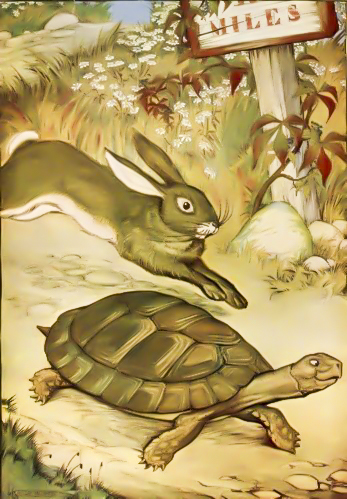
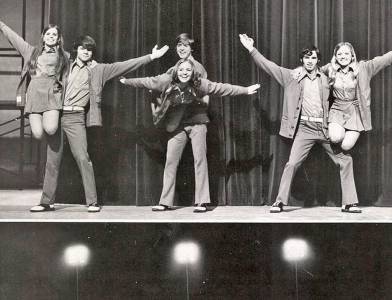
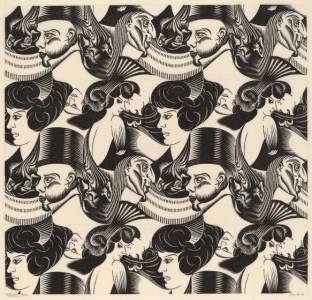
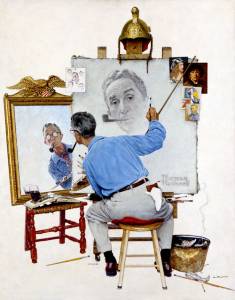



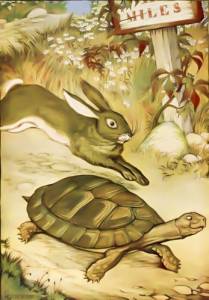
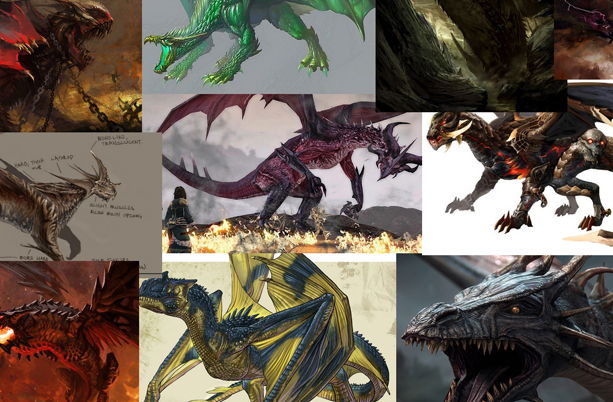
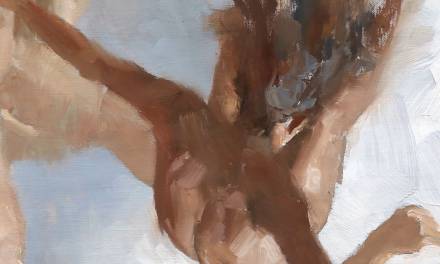
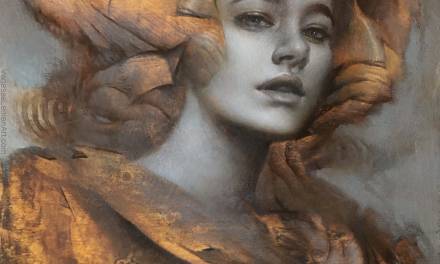
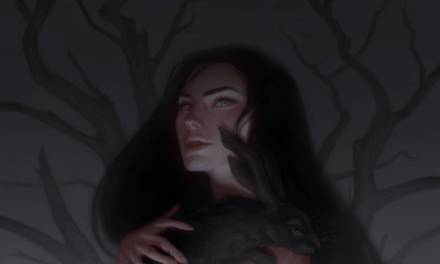
Thanks for your essay. I needed to hear this today.
Glad it landed well- there’s a funny irony to the art life that dabbles so much in magic: the actual act is never magical, not if you’re doing it right. We are conduits through which magic might flow but it can only properly arrive through elbow grease work and practice. Our job is to wrestle angels to earth, not confuse ourselves with the angels.
This read was a great way to start the day. A nice bit of reenforcement for my own personal creative development. I have felt the same way about making things for a while. I’m coming back into drawing in my senior 30’s and wish I had been more proactive earlier on, but also take stock in actually having the ability to appreciate my own incremental progress. Hard work pays dividends, and kudos are great, but I know I value truthful criticism more. I often find when I do share my stuff, I’m surprised how often people are drawn to stuff I don’t totally feel is my best work. I find it humbling and great for self evaluation. Validating insight for the win!
This perspective on talent has gotten me into some interesting discussions and disagreements with my brother. He feels that talent is not only an aptitude that gives a head start, but also a ceiling of what’s possible for some one to achieve. I think that a lot of people share that perspective of talent being a limiter when they say things like “I could never do what you do. I’m not that talented.” The main evidence used in his argument comes from his experience with rock climbing (something we both do as a hobby). He’s a big guy with tiny hands. As much as he enjoys it he’s not really built for rock climbing. The best climbers tend to be small, so they have less mass to haul up, and larger hands and feet give better gripping power. My brother could train and train and train, he’d absolutely get better, but he’d never be able to be the best. I experienced something similar when I was dancing, I got incredibly flexible and could overextend my splits on the right and left side. But I never was able to get my middle splits flat. My hip sockets are too deep. As much as I push my muscles and ligaments my joints are a limiter for how far I can stretch that position. And I really do wonder if this applies to art too? Is there some sort of physical or neurological aspect to creating art that means some people, no matter how hard they work, will never be able to achieve the extremes other people can? Or is Art, more a mental activity than a physical one, free of the talent limitations physical skills have?
“Talent without hard work is just a head start without a finish.” I couldn’t agree with this more. I remember how excited I got when I read Scott Fischer’s first Muddy Colors post, “I suck”. It was a giant beacon of hope for me. At that time I’d just graduated college with a degree in science but I started taking on little odd art jobs here and there and decided I wanted to pursue a career as an illustrator. The stuff Scott was producing early in college was not as good as what I could do when I read that article, and now he’s light years ahead of me! I felt like “if he can get that good with hard work and grit, then I can too damnit!”. Up until that point, art had been a hobby for me, and I’d been coasting on my talent without working really hard for it. My skill as a craftsman has definitely grown since then, but I still have a looooong ways to go and need to keep working hard.
I would suggest that physical limitations- true mechanical issues that prevent advancement are different from talent. I see talent as a head start capacity, but unlike your rock climbing friend small hands or scale, a lack of talent isn’t inhibitive for advancing. It just means more work. Talent is like a booster rocket that can leap,you ahead of your normal aptitude, but it doesn’t as I see it, contain a deficit except that it can be confused for quality, or put you in a place of ego that stultified your advancing.
A kid at my performing and visual arts high school in the art department was born armless and used his feet to draw. He was exceptionallly deft with his toes and astonishingly good at his craft. His physical limitations were almost irrelevant to his work, and he grew through busting his ass. Wherein was his talent then? His capacity to push forward, an ability to draw well naturally that helped him overcome his lack of the usual limbs? Hard work or the event that occurs when all are combined?
As for Scotty- I love that article. There’s a deep truth to it and I think a value behind demystifying what goes into good work that’s so essential to growing artists. Thanks for the comments-
Wonderful to read this here as I just sent out a newsletter along similar lines. The word Talent comes from the ancient Greeks, it was a unit of measurement, and that measurement in precious metals was used to pay people for hard work. The Parable of the Talents from the Bible is an instructive transition point, where the idea of talent gets untied from hard work, and starts to become linked with something more ethereal.
For the curious, here’s the newsletter (the talent bit is towards the end.)
http://www.nealvonflue.com/?mailpoet_router&endpoint=view_in_browser&action=view&data=WzEzLDAsMCwwLDcsMV0
Thanks for ringing the same bell, Greg. I think more artists need put this idea out there, both for young artists and for those who think that they were somehow deprived of talent.
“Talent is the siren song of art, and like any inheritance can cushion your entry into the world, but it won’t guarantee your growth that’s required to remain in the world”
Thanks for having put in words something which can be so difficult to understand when you are deeply taken by the process of creation, angry by “why I can’t do it better, I have talents, so why it’s so difficult” and finally give up by unsatisfaction and a bad feeling of underestimated. Why? because I just have to grow.
Being open to and pursuing critism from artist you admire is a good way to keep the “talent hubris” in check. Stagnation often occurs when you’re a big fish in a small pond. Always be looking for a bigger pond.
This is my stumbling block. I am the rabbit resting on his laurels. Though now I’ve over corrected and see how much ability I lack. I’ve been able to get good paying jobs from private clients and when I get paid for my work I have unhealthy guilt taking money not believing what I’ve done was worth the pay.
This is such a strange balancing act of the ego. Getting out of your own way is a full time job.
Inspiring words. You were very right when you said that Talent is the other word for Practice or Training. I too believe that. Talent can be generated with consistent hard work and dedication. One with born talent if does not take it to the right direction, he lost the charm and that talent is of no use.
Thanks- yes… talent by and large is the consequence of work, not the source of it. It can feed other projects of course, but is not a value unto itself and does not come like a lightening blast from the clouds. The ability to see differently is one thing, but to nurse that sight towards action is not a talent thing… it’s a practice thing.
I think whats at the heart of the talent problem is most artists not being clear on how they got their skills. Its frustrating to be told to work hard but be given no clear action items on what to work hard AT or how to best practice it. Most interactions I’ve had with artists who work in genres I want just can’t explain how they do it even if I get the chance to see them draw live. They started at a high level AND worked hard so its hard for me to relate. I understand practice is key but theres more to skill acquisition than just repetition. My greatest leaps came from knowing exactly what and how to practice.
I think most people who I consider talented I often find either knew somehow exactly what to practice and how (often thinking everyone will come to the same conclusion if told to “practice”.) had an almost celebrity teacher at their disposal or its been so long since they were bad they can’t give relevant advice. They can do it but can’t explain it and if you can’t put words to how its done, whether you worked hard at it or not, how else do you describe it other than talent? I think just as many quit from being talented and stop as those who worked so hard to get to that level only to burn out and never recover.
Talent has always been something very mysterious. Everyone has talent, whether we realize it or not.